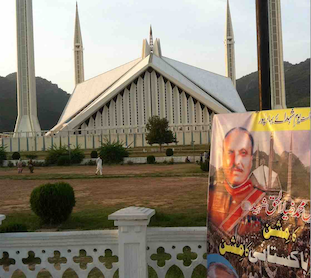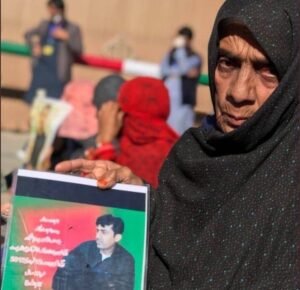Beyond Political Instability: The Structural Fault Lines Undermining Pakistan

By Fatima Chaudhary
Pakistan’s governance landscape is mired in a deepening crisis marked by systemic institutional decay, economic mismanagement, and a glaring absence of long-term strategic vision. While political instability and economic hardship dominate headlines, the roots of the crisis lie in entrenched corruption, unchecked military influence, and the state’s failure to address structural vulnerabilities. These intersecting challenges have created a cycle of dysfunction, leaving ordinary citizens to bear the brunt of inflation, insecurity, and deteriorating public services.
At the heart of Pakistan’s governance failures is pervasive corruption, which has hollowed out state institutions and diverted resources from critical public needs. Reports indicate that embezzlement, cronyism, and tax evasion by political and bureaucratic elites have become endemic, with little accountability for those in power. Analysts argue that successive governments have prioritized patronage networks over policy reforms, enabling a culture where public office is treated as a means of personal enrichment rather than service.
The lack of transparency in public procurement and contracting processes has further exacerbated the problem. Mega infrastructure projects, often funded through costly foreign loans, are routinely marred by allegations of kickbacks and inflated costs. Experts note that such practices not only drain scarce financial resources but also undermine the quality of essential services, from healthcare to education. Meanwhile, efforts to combat corruption, such as anti-graft bodies, remain politically weaponized, targeting opposition figures while shielding allies—a trend that erodes public confidence in institutions.
Pakistan’s economic struggles are both a symptom and a driver of its governance crisis. In 2024, inflation soared to historic highs, with food and energy prices becoming unaffordable for low- and middle-income households. While global factors like supply chain disruptions played a role, domestic policy failures—such as unsustainable subsidies, poor tax collection, and energy sector inefficiencies—deepened the crisis. The government’s reliance on short-term fixes, including repeated bailouts from the International Monetary Fund (IMF), has failed to address systemic weaknesses.
The IMF’s stringent conditions, such as austerity measures and regressive taxation, have disproportionately impacted vulnerable populations while doing little to stimulate growth or reduce debt dependency. Critics argue that Islamabad’s inability to implement structural reforms, such as expanding the tax base or privatizing loss-making state enterprises, reflects a broader lack of political will. “The cycle of crisis and rescue has become a permanent feature,” remarked a local economist. “Each IMF program buys time but entrenches the same imbalances, leaving the economy perpetually vulnerable.”
Pakistan’s military establishment continues to wield disproportionate influence over political and economic affairs, undermining democratic processes and long-term governance. Despite constitutional limits on its role, the military retains control over key policy domains, including national security, foreign relations, and even commercial ventures through its vast business empire. Observers highlight that elected governments often operate under the shadow of military interference, with administrations destabilized or toppled if they challenge the establishment’s interests.
This imbalance has perpetuated a culture of impunity. Security institutions face no meaningful parliamentary oversight, and allegations of human rights abuses—including enforced disappearances and extrajudicial actions—are rarely investigated. Meanwhile, the military’s dominance over defense and security policy has diverted resources away from social development. In 2024, Pakistan allocated nearly a quarter of its federal budget to defense spending, even as education and healthcare budgets stagnated. Analysts warn that this skewed prioritization undermines human capital development, a critical driver of sustainable growth.
The governance crisis has also created fertile ground for extremist groups to expand their influence. Counterterrorism efforts remain fragmented and reactive, with security agencies accused of tolerating or covertly supporting certain militant factions as geopolitical tools. This “good Taliban, bad Taliban” approach has backfired, enabling groups to regroup and launch brazen attacks on civilian and military targets. In regions like Khyber Pakhtunkhwa and Balochistan, the state’s failure to deliver justice, economic opportunities, or basic services has fueled resentment, driving recruitment for insurgent and terrorist outfits.
Experts stress that military-centric counterterrorism strategies, which prioritize force over dialogue or development, have only deepened instability. “Militancy cannot be bombed out of existence,” noted a regional security analyst. “Without addressing governance gaps and public grievances, the cycle of violence will persist.”
A recurring theme in Pakistan’s governance breakdown is the absence of accountability for powerful actors. While civilian leaders face selective prosecution—often as part of political vendettas—the military and judiciary remain largely immune to scrutiny. High-profile cases involving corruption or human rights violations by security officials are routinely dismissed or delayed indefinitely, reinforcing a culture of exceptionalism.
This accountability deficit extends to economic policy. Mismanagement in state-owned enterprises, such as Pakistan International Airlines and power distribution companies, has led to astronomical losses, yet executives and bureaucrats responsible face no consequences. Similarly, illegal capital flight—estimated in billions annually—continues unchecked, depriving the economy of vital foreign exchange.
For ordinary Pakistanis, the governance crisis translates into daily struggles for survival. Inflation has eroded purchasing power, with families forced to skip meals or withdraw children from school. Chronic energy shortages disrupt livelihoods, while inadequate healthcare infrastructure—exposed during the COVID-19 pandemic—remains unreformed. Youth unemployment, exceeding 30% in urban areas, fuels disillusionment and mass emigration.
The state’s inability to craft a coherent vision for the future has left the country at a crossroads. With elections frequently marred by allegations of rigging and military manipulation, public faith in democracy is waning. Meanwhile, climate change—a looming existential threat—receives scant attention, as policymakers remain preoccupied with immediate crises.
Without sustained pressure from citizens, media, and international partners, Pakistan’s governance crisis risks spiraling into irreversible decline—a scenario with dire implications for regional stability and global security. The stakes could not be higher.
Fatima Chaudhary is a lecturer at a private university in Punjab province.
Note: The contents of the article are of sole responsibility of the author. Afghan Diaspora Network will not be responsible for any inaccurate or incorrect statement in the articles.










